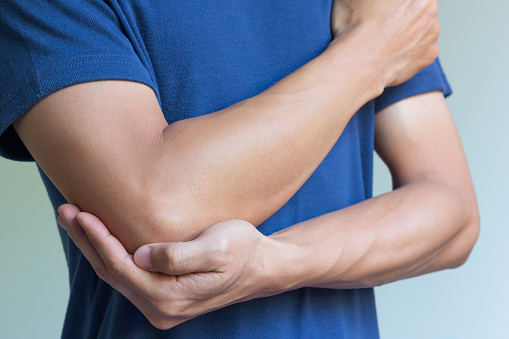Tendinitis Causes, Symptoms, Diagnosis and Treatment

What is Tendinitis?
Tendinitis is irritation and inflammation of a tendon, any of the thick fibrous cord that connects muscle to bone. The condition causes pain and tenderness simply outside a joint. While tendinitis can happen in any of your body’s ligaments, it’s most normal around your shoulders, elbows, wrists, knees and heels.
Causes of Tendinitis
Tendinitis most often is caused by repetitive, minor impact on the affected area, or from a sudden, more serious injury.
- Poor posture at work or home
- Presence of certain diseases: rheumatoid arthritis, gout/pseudo gout, blood or kidney diseases. These diseases can weaken muscles.
- Adults 40 years of age and older. As tendons age, they tolerate less stress, are less elastic, and tear more easily.
- Medications (rare occurrence): fluoroquinolones antibiotics (such as ciprofloxacin and norfloxacin and statins (drugs that lower cholesterol). These medicines can cause tendons to tear.
Symptoms of Tendinitis
The symptoms of tendinitis are as follows:
- Pain – if the affected area is moved the pain worsens
- A feeling that the tendon is crackling or grating as it moves. This sensation is more common on examination.
- Swelling in the affected area
- The affected area may be hot and red
- A lump that develops along the tendon
- If there is a rupture a gap may be felt in the line of the tendon and movement will be very difficult.
Diagnosis of Tendinitis
Tendinitis can be diagnosed by a GP (general practitioner, primary care physician) based on the patient’s symptoms and a physical examination (as well as tenosynovitis). When attempting to move the tendon a creaky sound may be heard; this is because the tendon sheath has become thicker.
X-ray pictures that show up calcium deposits around the tendon may help confirm a diagnosis.
Imaging tests, such as ultrasound or MRI (magnetic resonance imaging) may reveal swelling of the tendon sheath.
Treatment of Tendinitis
The treatment of tendinitis are as follows
Medications
Pain relievers
•Aspirin
•Naproxen sodium (Aleve)
•Ibuprofen (Advil, Motrin IB, others)
Topical creams with anti-inflammatory medication
Corticosteroids
Platelet-rich plasma (PRP)
Therapy
- A program of specific exercise designed to stretch and strengthen the affected muscle-tendon unit.
Surgical and other procedures
- Depending on the severity of your tendon injury, surgical repair may be needed, especially if the tendon has torn away from the bone.
- For chronic tendon inflammation, focused aspiration of scar tissue (FAST)
By : Natural Health News




